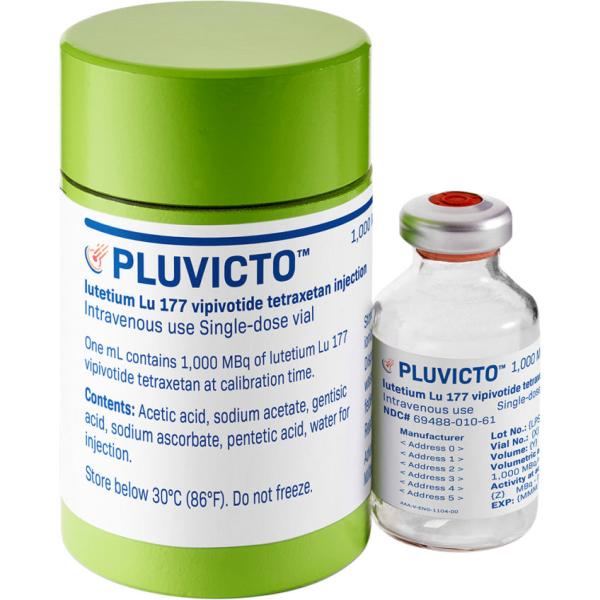Pluvicto Interactions
There are 220 drugs known to interact with Pluvicto (lutetium lu 177 vipivotide tetraxetan), along with 2 disease interactions. Of the total drug interactions, 81 are major, and 139 are moderate.
- View all 220 medications that may interact with Pluvicto
- View Pluvicto disease interactions (2)
Most frequently checked interactions
View interaction reports for Pluvicto (lutetium lu 177 vipivotide tetraxetan) and the medicines listed below.
- acetaminophen
- amlodipine
- amoxicillin
- Andembry (garadacimab)
- apalutamide
- aspirin
- atorvastatin
- Benadryl (diphenhydramine)
- Biktarvy (bictegravir / emtricitabine / tenofovir alafenamide)
- Brilinta (ticagrelor)
- cefdinir
- cetirizine
- citalopram
- clobetasol topical
- clonazepam
- clonidine
- Eligard (leuprolide)
- levothyroxine
- losartan
- melatonin
- metformin
- Metoprolol Succinate ER (metoprolol)
- Nubeqa (darolutamide)
- ondansetron
- Orgovyx (relugolix)
- pantoprazole
- prednisone
- venlafaxine
- Vitamin D3 (cholecalciferol)
- Xgeva (denosumab)
Pluvicto disease interactions
There are 2 disease interactions with Pluvicto (lutetium lu 177 vipivotide tetraxetan) which include:
More about Pluvicto (lutetium lu 177 vipivotide tetraxetan)
- Pluvicto consumer information
- Compare alternatives
- Pricing & coupons
- Reviews (5)
- Drug images
- Side effects
- Dosage information
- During pregnancy
- FDA approval history
- Drug class: therapeutic radiopharmaceuticals
Related treatment guides
Drug Interaction Classification
| Highly clinically significant. Avoid combinations; the risk of the interaction outweighs the benefit. | |
| Moderately clinically significant. Usually avoid combinations; use it only under special circumstances. | |
| Minimally clinically significant. Minimize risk; assess risk and consider an alternative drug, take steps to circumvent the interaction risk and/or institute a monitoring plan. | |
| No interaction information available. |
See also:
Further information
Always consult your healthcare provider to ensure the information displayed on this page applies to your personal circumstances.


